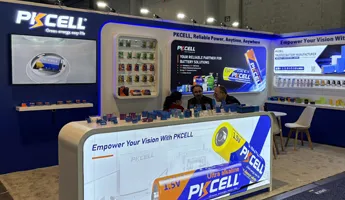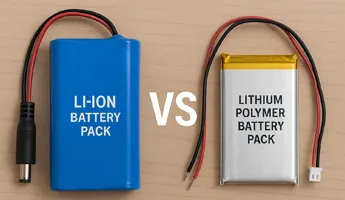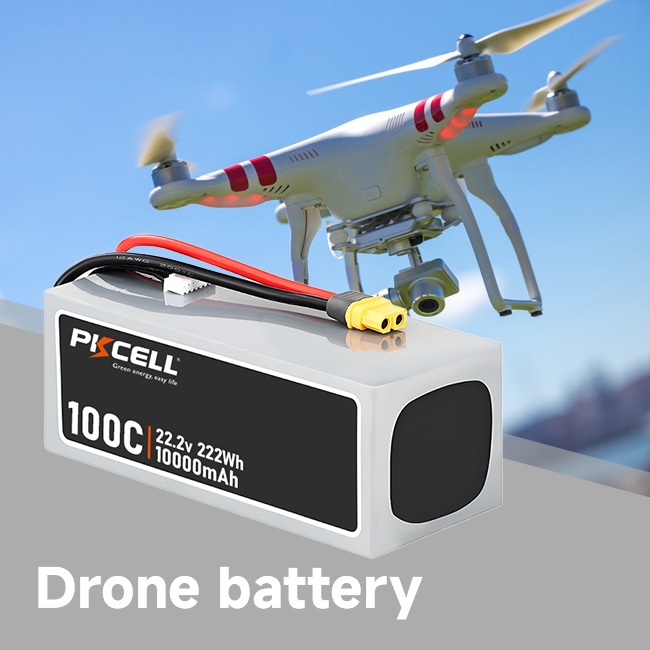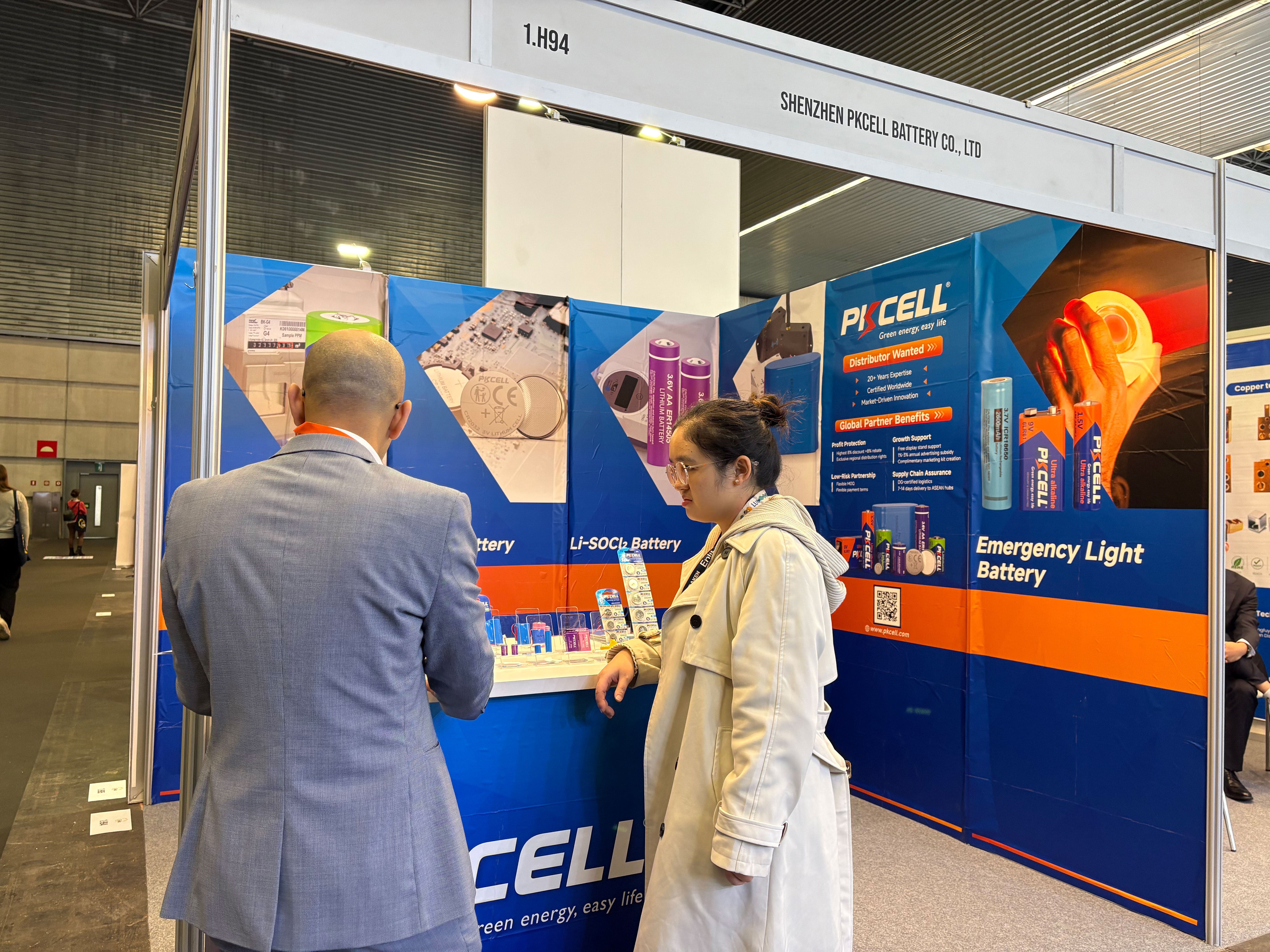

Introduction
Vacuum cleaners are key for keeping homes and offices clean. Cordless vacuum cleaners make it simpler and more convenient to clean. Choosing the right battery for a vacuum cleaner is also important. A good battery improves how well the cleaner works, how long it runs, and how long it will last.
In this guide, we will explore the various types of vacuum cleaner batteries. We will talk about what you should consider when choosing one. You will also get tips on how to take care of and replace your vacuum cleaner battery. By the end of this article, you will understand how to select the best battery for vacuum cleaner.
What Types of Vacuum Cleaners Require Battery Power?
Traditional corded vacuum cleaners are often large and tough to handle. Their cords can get tangled, and they require power outlets to function. To fix these issues, several well-known brands have created the cordless battery vacuum cleaner. For example, Dyson battery powered vacuum cleaner, Shark battery operated vacuum, Hoover battery power vacuum cleaner, and Tineco cordless vacuum.
Cordless vacuum cleaners offer freedom while cleaning. They have strong suction and batteries that last longer. This is why many people choose them for their homes today. There are different types available, each designed for specific cleaning needs.
- Upright Vacuum Cleaners: Upright cordless vacuum cleaners are powerful and excellent for cleaning large spaces. They typically have long-lasting batteries for extended cleaning times.
- Robot Vacuums: Robot vacuums clean by themselves and come with rechargeable batteries. They use smart navigation and sensors to clean floors effectively without needing human help. Popular brands like iRobot Roomba, Roborock, and Eufy are well-known for their hands-free cleaning.
- Handheld Vacuums: Handheld vacuums are small and light, making them ideal for quick cleanups. You can use them to clean cars and furniture or to pick up small spills. They are compact and use lightweight yet strong batteries.

Common Battery Types Used in Cordless Vacuum Cleaners
The battery in a cordless vacuum cleaner is important. It affects the cleaner’s running time, weight, and performance. Different batteries have their own pros and cons. Here are the most common types of battery for vacuum cleaner:
1. Lithium-Ion (Li-Ion) Batteries
Many new vacuum cleaners use lithium batteries. These batteries last longer and offer strong suction. They make lightweight vacuum cleaners easy to use. They also help give a long battery life. You won’t feel embarrassed about needing to recharge several times during one cleaning.
- Pros: These batteries are easy to carry and small in size. They hold much energy and charge fast. They last a long time and work well every time. You can recharge them at any time without worrying about losing power because they don’t have a memory effect.
- Cons: They cost more than other types of batteries and can struggle in very high or low temperatures.
2. Nickel-Cadmium (Ni-Cd) Batteries
- Pros: It’s affordable, sturdy, effective in extremely hot or cold temperatures, and can manage much power.
- Cons: It is hefty and large, stores less energy, must be completely used before charging again, and contains harmful cadmium.
3. Nickel-Metal Hydride (Ni-MH) Batteries
- Pros: They are better for the environment. They have lower self-discharge rates. They also have higher energy capacity, which means they can last longer. Plus, there’s less memory effect when compared to Ni-Cd batteries.
- Cons: They have a shorter lifespan. They lose charge quicker when not used compared to Li-Ion batteries. Additionally, they can become hot when used frequently.
4. Lead-Acid Batteries (Less Common)
- Pros: Low cost, excellent power.
- Cons: Very heavy and big, has a short life, requires regular maintenance.

How to Choose the Right Battery for Vacuum Cleaner
Compatibility with Your Vacuum Cleaner
Not all batteries are suitable for every vacuum cleaner. Before you buy a new one, check if the vacuum battery matches your cordless cleaner. Look at your vacuum’s instruction manual or follow the manufacturer’s guidance. Using an incorrect battery can result in poor performance, harm your vacuum, or create safety issues.
Here are some key points you should consider:
- Battery Chemistry: This affects how long the battery lasts, how many times you can charge it, and how it affects the environment. Li-Ion batteries are the most used in today’s vacuum cleaners because they perform well.
- 전압(V): Voltage determines how powerful the vacuum cleaner is. It should match what the vacuum needs. Check your old battery for its volts and buy a new one that has the same voltage. Small differences, like 14.8v vs. 14.4v, are usually fine and can happen due to how the manufacturer writes it.
- Capacity (mAh or Ah): This shows how long the vacuum will run. A larger capacity means it can run longer before needing a charge. A higher capacity might also make the vacuum heavier and more costly.
- Weight: The weight can affect how easy it is to use, especially for handheld vacuum cleaner models.
Is it mandatory to choose an original battery?
Choosing an original battery is a smart move. It helps your vacuum cleaner work better. However, original batteries can be more expensive. They also have some downsides. For example, they are more expensive, may take longer to deliver, and may come with extra shipping fees.
You can find some great alternatives in the market. These options can offer the same runtime as the original battery but at a lower price. Companies like Pkcellsolution.com make customized vacuum cleaner batteries that match your needs. A custom battery for vacuum cleaner can help improve performance, last longer, and be safer and more compatible.
Other Personal Factors to Consider

- Runtime: Check how long the vacuum runs after a full charge. If you need to clean a large area or want to finish quickly, choose a battery that lasts longer.
- Cleaning Intensity: Think about the types of cleaning you usually do. For heavy cleaning jobs, lithium-ion batteries are best. For lighter cleaning, nickel-cadmium batteries may be enough.
- Charging Time: Find out how long you’re willing to wait for the battery to charge fully. A good battery for vacuum cleaner should recharge in a reasonable time so you can start cleaning sooner. Batteries that charge fast are better for regular use.
- Lifespan: If you are looking for a long-term investment, you need to find a long lifespan battery. A long lifespan means less frequent battery changes. Generally, lithium-ion batteries last longer than nickel-cadmium batteries.
- Budget and Cost: Consider your budget when making a choice. Lithium-ion batteries offer better quality, but nickel-cadmium batteries are cheaper. Many brands, like Pkcell, provide discounts for bulk purchases and flexible order amounts.
- Environmental Impact: Choosing rechargeable and recyclable batteries helps protect the environment. Lithium-ion and NiMH batteries are better options than NiCad batteries for the earth.
- Quality and Brand Reputation: Always select batteries from trusted brands to ensure good quality and safety. Buying from reliable brands like Pkcell increases safety and reliability.
Safety and Maintenance Tips for Vacuum Cleaner Battery
Proper Charging Techniques
- Use the correct charger for your battery.
- To stop overcharging, unplug the battery when it is fully charged.
- Recharge your battery regularly, and try to do it at least once a month.
- Don’t let the battery die completely before you recharge it.
How to Extend Battery Lifespan?
- Follow the instructions that the maker gave you.
- Store the vacuum cleaner in a cool and dry place.
- Do not let the battery run all the way down.
- Use the automatic, normal, or “eco” setting. Only use full power for really dirty spots.
- Avoid using it in extremely hot or cold weather.
- Let the vacuum cleaner cool off after using it before you charge it.
- Use the vacuum cleaner regularly, and do not leave it sitting for too long.
Cleaning and Protection

- Clean your brushes, filters, and sensors regularly.
- Keep the battery and its terminals clean. A clean connection allows it to work properly.
- Use a soft, damp cloth to wipe the battery.
- Avoid dropping or damaging the battery in any way.
- Look for any cracks, leaks, swelling, loose connections, or other damage.
- If you see any problems, safely dispose of the battery or ask a professional for help.
Safe Storage and Disposal
- Keep batteries in a cool and dry place.
- Don’t let batteries get too hot or wet or be in direct sunlight.
- Store batteries away from metal objects to prevent short circuits.
- Follow recycling guidelines when disposing of old batteries.
Recognizing and Handling Battery Issues
- Vacuum will not turn on: Check if the battery is charged. If the vacuum still does not turn on, there could be an issue with the battery or its parts inside.
- Reduced run time: The battery might be old, worn, or not working properly. Clean the battery vacuum cleaner regularly. Also, check the filter and brush roll for dirt. Keep an eye on the battery’s health, and do not let it get too low.
- Will not charge: The problem could be with the charger or battery. Inspect the power outlet, charging cable, connector, battery contacts, and battery compartment for damage. A faulty battery might need replacing.
- Overheating: Poor ventilation, charging issues, or battery problems can cause overheating. Stop using it right away and let it cool down. If it keeps overheating, you may need to replace the battery for vacuum cleaner.
- Batteries are swollen or leaking: Stop using the battery power vacuum cleaner immediately and change the battery.
- Corrosion on battery terminals: Moisture or the environment may cause corrosion. Clean the terminals with a dry cloth or a small brush. Store the vacuum in a dry area.
- Wear and tear: Over time, the battery can lose effectiveness, wear out, or get cracks. Monitor the battery performance regularly. If it looks worn, consider getting a new one.
Vacuum Cleaner Battery Replacement

Signs that the Battery Needs Replacement
Even if you do your best, your battery for vacuum cleaner will eventually need to be changed. Here are some signs that show it’s time to buy a new battery:
- The battery vacuum cleaner is not working as well anymore.
- The battery power vacuum cleaner has weak power when you use it.
- The battery powered vacuum cleaner can shut off suddenly or behave oddly.
- It runs for a shorter amount of time.
- There are problems with charging, and it takes longer to charge.
- You can see clear signs of damage, like overheating, swelling, or leaking.
How to Replace a Battery for Vacuum Cleaner ?
Some vacuum cleaners’ batteries cannot be replaced. You have to send them back to the original maker for a replacement or repair. On the other hand, some vacuum cleaners can change the battery by themselves. Please follow the steps below.
First, look at the user manual to know what type of battery you need. Find a compatible battery that fits. Second, safety is very important! Please turn off the vacuum cleaner and unplug it from the charger. Third, find the battery compartment. It usually has screws or clips holding it. Fourth, carefully remove the old battery by following the manufacturer’s guide. Fifth, place the new battery into the compartment correctly. Make sure it is connected and lined up properly. Sixth, close the battery compartment based on the instructions after putting in the new battery. Finally, test the vacuum cleaner to check if the new battery works. Following these simple steps will help you replace the vacuum cleaner battery easily.
결론
Choosing the right battery for your vacuum cleaner is key to getting the best performance. You should think about whether the battery is compatible and how long it can last. It’s also important to consider its impact on the environment. By selecting good-quality batteries that fit well and taking care of them, you can make the battery last longer. This can help you save money on replacements. If you need high-quality vacuum cleaner batteries, visit Pkcellsolution.com for the best options.

Frequently Asked Questions
How long does a battery for a cordless vacuum cleaner last?
A battery for a cordless vacuum cleaner can last from 1.5 to 5 years. This depends on how you use and care for it. Many things can affect its life, like how you charge it, the battery’s quality, and how often you use the cleaner.
How should I store my vacuum when not in use for an extended period?
If you plan to store your vacuum for several weeks or even months, here are some tips to keep the battery healthy:
- Fully charge the battery before you store it.
- Remove the battery from the vacuum and place it in a cool, dry place.
- Avoid extreme temperatures and humidity.
- After some months, recharge the battery to keep it in good condition.
Where can I buy the best battery for vacuum cleaner?
You can find the best vacuum cleaner batteries at reliable online stores, electronics shops, or the manufacturer’s site. If you are looking for a good and long-lasting battery for your vacuum cleaner, Pkcellsolution.com is a great choice. We offer custom battery solutions for many vacuum models. Our batteries provide strong and steady performance. They are light, easy to use, safe, and charge quickly. For a longer-lasting and safer cleaning experience, choose Pkcell!





